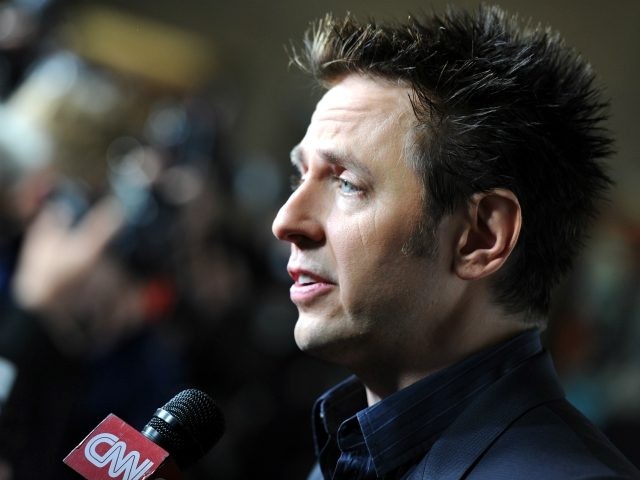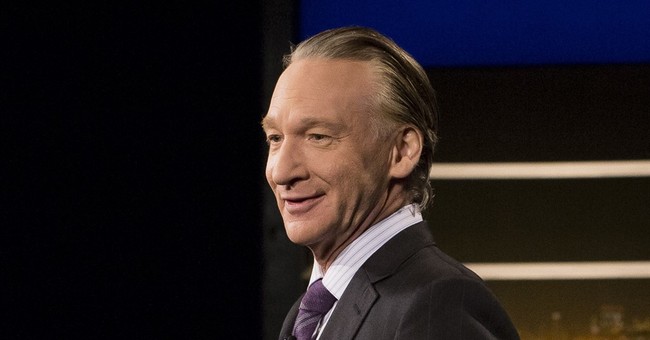The Tyranny of Woke Capital
Traditional American values have long been under attack by social justice warriors, cultural Marxists advancing the insidious tenets of critical theory. Their “long march through the institutions” has infiltrated schools, universities, entertainment, the mass media, the courts, politics, and beyond. One might assume that business, adhering to the Milton Friedman doctrine of maximizing returns for shareholders, would be insulated from their malign agenda. But that assumption is no longer valid, according to Stephen Soukup’s recent book The Dictatorship of Woke Capital: How Political Correctness Captured Big Business. He illuminates how ‘progressive’ forces have insinuated themselves into regulatory agencies, the finance industry, and corporate America, jeopardizing capital markets and the free-market system itself.
The book traces the genesis of American progressivism to Richard Ely (1854-1943) of Johns Hopkins University. Believing in a confused amalgam of religion, socialism, white superiority, and a paternalistic state, Ely advocated that the state should be harnessed to fix social problems like poverty, alcoholism, racial tension, and child labor in G-d’s name. He never presented himself as a socialist, but believed G-d works through the state, which should heal the ills of capitalism through labor reform and compulsory education. With little faith in the canaille to vote in society’s and their own best interests, he favored a “third way”: employing professional administrators to manage society rationally, guard against laissez-faire economics, and make socialism unnecessary. This new progressivism looked at the American state as the natural, necessary “administrator” of civic life.
Political scientist Dwight Waldo, the defining figure of modern public administration, refined Ely’s ideas and propounded that public servants should be “value advocates,” “agent of change,” and stewards of “social equity, democratic administration, and proactive, non-neutral public administration.” Voters and their elected representatives were to be superseded by unelected, unaccountable experts -- with ostensibly better values than the people. Though it was seen as being in violation of the Constitution, Waldo wanted a central bank with an administrative elite controlling monetary policy to maintain stability.
Soukup goes on to explain how contemporary left-leaning liberalism elevates these ideas of working through institutions. While Marx presumed that history was about economic conflict, the Italian communist philosopher Antonio Gramsci argued that the key struggle was cultural. To inspire revolution and liberate the working class, it was necessary to vanquish the church and other enablers of bourgeois culture. Herbert Marcuse, a key figure of the Frankfurt School and proclaimed father of the New Left, fused Marx, Gramsci, and Freud to conclude that capitalism crushed human capacity for creativity, spontaneity, critical thought, and oppositional behavior. The Frankfurt School became the spark for Cultural Marxism to shift its focus to Critical Theory, which aims to critique power structures and undo the cultural and psychological hegemony of the bourgeois. This philosophy paved the way for the 1960s’ radical student movement. It was these alienated youths who initiated the subversion of the American university. The idea that traditional American culture was a selfish and inhibiting bourgeois false reality took hold in academia. The “march through the institutions” had begun, spreading from the universities to the professions and other domains.
At this point, according to Soukup, a major obstacle to the cultural revolution was America’s rootedness in business, with its dependence on and responsibility for structure, order, production, investment, and prosperity. But a slow change began in the 1970s, with the ideas of socially responsible investment and stakeholder interests -- rather than shareholder interests -- taking precedence. Religious groups had wielded such influence on businesses in the 1950-60s by avoiding “sin stocks.” But now, there  was a political dimension: the clout of the shareholder was used to pressure companies to accommodate social or political goals. Over the decades since then, managers have come to focus on ethical and social issues, capital markets have become politicized, and strategic business planning is mired in conflicting ideas of social justice. From the early 2000s, businesses have been gravitating towards incorporating environmental, social, and governance (ESG) issues into investment policy.
was a political dimension: the clout of the shareholder was used to pressure companies to accommodate social or political goals. Over the decades since then, managers have come to focus on ethical and social issues, capital markets have become politicized, and strategic business planning is mired in conflicting ideas of social justice. From the early 2000s, businesses have been gravitating towards incorporating environmental, social, and governance (ESG) issues into investment policy.
The Big Three investment management companies -- BlackRock, Vanguard, and State Street -- are well-aligned on ESG goals. Together holding about 22% shares of the typical Standard & Poor’s 500 company. Soukup gives readers an idea of the clout they command with the example of asset manager Larry Fink of BlackRock, who manages more than $7 trillion in passive assets and $2.5 trillion in active assets. Such firms can operate independently of the will of the people, effecting change at whatever companies they choose.
Their cynicism and hypocrisy are on shameless display. BlackRock is a member of Climate Action 100+, an investor group aligned with the Paris Agreement, but is one of the biggest American investors in Communist China, the world’s largest greenhouse gas emitter. It plans to expand operations and become China’s leading foreign asset manager. Ironically, in America BlackRock speaks of sustainability goals that put our companies at competitive disadvantage to Chinese ones. Many hedge funds are players in this politicization of capital markets: they cheer autocratic China and are harshly critical of American capitalism. Government pension funds too are politically compromised: promoting progressive activism and focusing on ESG, they end up performing subpar instead of maximizing returns for pensioners. The California Public Employees Retirement System (CalPERS), the largest pension fund in the U.S., has $3 billion invested in China, including in Chinese military contractors.
Soukup charts how activists realized in the late 1980s that they could influence capital markets to advance their political agendas and impose their moral framework on the business world. Many powerful activist nonprofits use shareholder resolutions, disavowal of pro-business trade groups, and arbitrary reports or public ratings of companies’ social responsibility policies (such as the Corporate Equality Index) to push their own goals.
Even government agencies, such as the Securities and Exchange Commission (SEC), the CFA Institute, the Federal Reserve, and central banks are in the game. The SEC has abandoned objectivism to approve of the activist, interventionist stakeholder model; the CFA has included material on ESG in its curriculum; the Fed has set up a financial infrastructure that rewards progressive interests and sees the climate change issue as one of its fiduciary responsibilities.
Several major U.S. companies contribute to the “woke capital” dictatorship. Apple, with its largest manufacture base and second largest consumer market in China, is a staunch ESG advocate when convenient. It donates to egalitarian causes and promotes a carbon-free future, but powers just 5% of its operations with renewables, has a planned obsolescence policy that uses minerals mined through child labor in Africa, and avoids $77 billion in U.S. taxes by using slave labor in China. Disney is unwilling to displease China, one of the biggest film-watching countries, but is happy to needle state government at home for legislation that serves its woke interests. AmazonSmile relies on the hate-mongering Southern Poverty Law Center, which defunds conservative organizations by mislabeling them as “hate groups,” to approve its charitable donations.
Soukup warns that we must fight to “preserve the spirit of innovation and expression that harnesses liberty to create wealth and prosperity.” The free-market economy and the American way of life are in danger. It’s time, he says, to “depoliticize business, depoliticize markets, get back to neutral.”
Wall Street Journal Bans Reporters from Using the Term ‘Illegal Immigrant’

The Wall Street Journal, owned by billionaire Rupert Murdoch’s News Corp., is banning its reporters from using the term “illegal immigrant” and “illegal” to refer to illegal aliens living in the United States.
This week, in an update its style guide, the Journal states that while it will allow reporters to continue using the term “illegal immigration” to describe the process of illegal aliens arriving and staying in the U.S., it will no longer permit reporters to describe individuals as “illegal” or “illegal immigrant” in an effort to stop “labeling people.”
The Journal style guide revisions now state:
Illegal immigration describes the actions of people who cross borders illegally or remain in a country after their legal right to stay has expired. Use illegal to refer only to an act, not to a person or people: illegal immigration, but not illegal immigrant(s). When describing a broad category of immigrants, use alternatives such as immigrants who entered the country illegally … people living in the U.S. unlawfully or without the legal right…. When needed, the phrase lacking permanent legal status is accurate shorthand covering both those in the country illegally and those with a protected status that shields them from deportation. [Emphasis added]
Illegal immigration is a highly charged issue that must be covered with precision and sensitivity, without taking sides or resorting to pejorative labels or to euphemisms that avoid calling acts in violation of immigration law what they are—illegal. It is acceptable to write about illegal immigration as a process or issue: Then–President Donald Trumpmade illegal immigration a centerpiece of his presidency. But the shorthand phrases commonly used in the U.S.—illegal immigrants, undocumented immigrants, unauthorized immigrants, illegal aliens—have become politicized or lack precision. Don’t use such labels except when quoting people or official documents. [Emphasis added]
The Journal is only the latest establishment media publication to ban the use of accurate terms that describe illegal aliens living in the U.S. In 2013, as Breitbart News reported at the time, the Associated Press (AP) banned its reporters from using the term “illegal immigrant” and “illegal” to describe illegal aliens.
Most recently, President Joe Biden’s administration has banned the use of the terms “illegal alien” and “assimilation” and has instead blanketed all foreign nationals in the U.S. as “noncitizens” and “undocumented noncitizens.”
House Democrats filed legislation in January to ban the use of the term “illegal alien” and “alien” in federal law and documents.
“Illegal alien” as a description for foreign nationals living illegally in the U.S. was codified into federal statute in 1986 by the Immigration Reform and Control Act and the term “alien” regularly refers to noncitizens or non-U.S. nationals in federal law.
The term “undocumented” to describe illegal aliens, however, incorrectly assumes that all illegal aliens are undetected by the federal government. On the contrary, there are a number of categories of illegal aliens who have been documented as entering the U.S. and not leaving, such as visa overstays or recipients of the Deferred Action for Childhood Arrivals (DACA) program.
John Binder is a reporter for Breitbart News. Email him at jbinder@breitbart.com. Follow him on Twitter here.
Nolte: Marvel Director James Gunn Defends Hollywood Blacklist

Wife shoots husband dead. Cops show up, see her standing next to the dead body. Wife says there is no dead body. Cops say there is. She insists there’s not. Cops leave. This is what Marvel director James Gunn wants us to believe about the current wave of blacklisting, book burning, and cancel culture sweeping the country — What dead body?
“Stop calling everything ‘cancel culture’ because you’re too dim to have a nuanced opinion,” Gunn tweeted last week. “People can be offended by something, or think something sucks, and that’s not “cancel culture” – it’s free speech.”
Stop calling everything "cancel culture" because you're too dim to have a nuanced opinion. People can be offended by something, or think something sucks, and that's not "cancel culture" – it's free speech.
— James Gunn (@JamesGunn) March 7, 2021
There’s a whole thread there, if you want to read it… He defends the blacklisting of Pepe Le Pew, the decision to figuratively burn Dr. Seuss books, and so on… And at no point does he claim the cancel culture has gone too far, including when he lost his own job…
“And for all of you out there (I see you) saying, ‘What about people who try to cancel you?! Do they have the right to do that?!’ OF COURSE THEY DO. And I will fight for their right to do so. I may not agree with their opinions but I believe deeply in their right to free speech.”
And for all of you out there (I see you) saying, "What about people who try to cancel you?! Do they have the right to do that?!"
OF COURSE THEY DO. And I will fight for their right to do so. I may not agree with their opinions but I believe deeply in their right to free speech.
— James Gunn (@JamesGunn) March 7, 2021
His defense boils down to this: blacklisting or “canceling” is merely free speech.
So when Disney fired Gina Carano for a tweet using an anodyne Nazi analogy, something her co-star Pedro Pascal did without being fired, that was merely Disney using free speech.
When Twitter removes people from its public square monopoly because those people believe men are men and women are women, that’s just free speech.
When Facebook destroys small businesses dependent on a platform that promised unfettered free speech by blacklisting their page over political positions on issues like gender and vote fraud, that’s just free speech.
So I guess Gunn believes the following is true…
Back in the 1950s, when the Hollywood blacklist was in full bloom, when private companies and individuals (the government had nothing to do with the Hollywood blacklist) were “canceling” the likes of Dalton Trumbo and Albert Malz and Ring Lardner Jr., and the rest of the Hollywood Ten, and hundreds of others, that wasn’t canceling or blacklisting, that was just producers, directors, studios, and sponsors practicing their own free speech.
You see, cowardly fascists like Gunn can’t have it both ways. Today, as good people watch in horror while mega-corporations blacklist people and art and ideas, Gunn doesn’t have the moral courage to say this is wrong. And in defending today’s McCarthyism, he is retroactively defending the McCarthyism that poisoned Hollywood throughout the 50s. It is simply a fact that what happened in the 1950s is happening today. There’s no difference. Today’s Woke Nazis are even using the same language: safety, morality, patriotism, greater good.
The truth is this: history is going to judge James Gunn and his appeasing ilk in the same way history judged the cowards and quislings of the 1950’s blacklist.
Name a time when the censors and witch hunters and book burners and blacklisters ever came out on the right side of history, or when their enablers like James Gunn were remembered as anything other than cowards.
There is no such time, and eventually this moral panic will pass and history will remember those who stood up to the mob, those who joined the mob, and moral cowards like James Gunn who tried to gaslight us into believing the mob is a good and noble thing.
Where Is Wokeness Taking America? Bill Maher Offers Blunt Assessment.

Source: Janet Van Ham/HBO via AP
Comedian Bill Maher offered a blunt take on the U.S. vis-à-vis China, arguing America isn’t losing against its adversary, it’s already lost.
He began with a critique of the American people, whom he referred to as “silly,” and showed one of the now-banned Dr. Seuss books that had a caricature of a Chinese man. He said no one in China cares about it because “they are not a silly people.”
But Americans? “Half the country is having a woke competition deciding whether Mr. Potato head has a dick."
Maher didn’t dismiss the communist regime’s human rights abuses and other authoritarian measures, but said there has to be something “between [an] authoritarian government that tells everyone what to do and a representative government that can’t do anything at all.”
He pointed to China’s tremendous growth over the last two decades, building hundreds of cities from scratch, to bringing a majority of its population to the middle class, to cornering the market in 5g and pharmaceuticals. Meanwhile in America, it always seems to be Transportation Week, but nothing ever gets accomplished—and that extends to any problem, even when both sides agree.
“We see a problem and we ignore it, lie about it, fight about it, endlessly litigate it, sunset clause it, kick it down the road, and then we write a bill where a half-ass solution doesn’t kick in for 10 years,” he said. “China sees a problem and they fix it. They build a dam. We debate what to rename it.”
He also criticized the trend in progressive circles to “sacrifice merit for equity,” pointing to some colleges getting rid of the ACT and SAT. “Do you think China’s doing that? Letting political correctness get in the way of nurturing their best and brightest?” he asked, mocking some of the ridiculous courses behind offered in colleges and universities these days.
“We’re not losing to china, we lost,” he said. “The returns just haven’t all come in yet.”
Nothing ever moves in this impacted colon of a country. We see a problem and we ignore it, lie about it, fight about it. When China sees a problem, they fix it. They build a dam, we debate what to rename it. #SpoilerAlert #WeLost pic.twitter.com/sETFwt7yFT
— Bill Maher (@billmaher) March 13, 2021

No comments:
Post a Comment